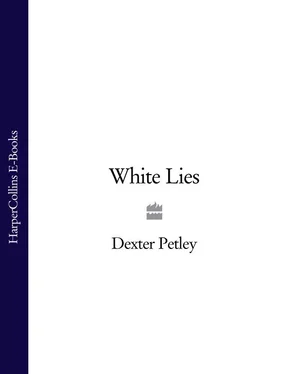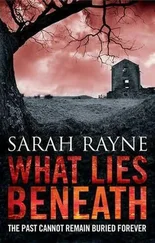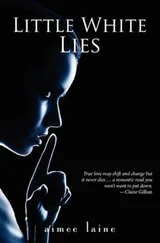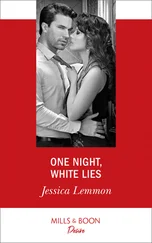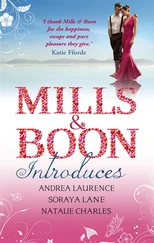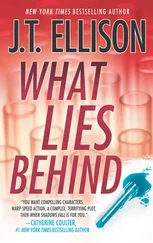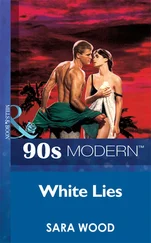We walked to Club 1900. He hesitated.
—No way, I said and walked on.
He caught me up and started to jibber.
—It is our lucky day. One time, before, I found nine thousand dollars in Mombasa and bought a Volvo. Five thousand shillings, it is nothing to me. This is true, I have eighty thousand shillings on me.
He started to look ridiculous, a parody of suspicion, tracing and retracing his steps, peering off the road at any path or hideout. We were down among the wholesale shops, the dry goods, the Asian importers and office suppliers. Old Nairobi, low colonial stores, shoe shops, seamstresses, the smell of cotton and leather and printers’ ink. Cool, tidy, dusty shops with atriums and balconies where gentle but highly strung Patels sat at colossal rolltop desks looking down into the shop below. I’d begun to go there to change my currency, just paltry sums like a ten-dollar bill, but I was always invited to draw up a chair under the ceiling fan to drink a Pepsi and to listen to their gripes about police harassment, bent customs officers, greedy relatives in St Leonards.
—Give me twenty steps, he said. I am turning off this road on the corner.
He pointed to a rubbish patch, a wasteland with paths that crisscrossed between the ditches and the warehouses. It was lunchtime. Workers lounged in groups, Asian shopgirls smoking and drinking tea, messengers in flipflops chucking mango skins in the gutter. They all watched as I waited for my signal. It came from a ridge a hundred yards away. He beckoned, like he was digging a hole with one hand, before squatting under banana fronds. A hundred people saw me pick my way over to the sewage drain.
—Were you seen? he says.
I felt sick. I’d used up a whole day’s energy and shouldn’t have been slagging on an empty stomach after two weeks throwing up chloroquine. My legs were too weak to squat and I got the shakes. He was waving the packet in the air.
—Your lucky day. My lucky day. Which day you born?
He gave me the chit. I was born yesterday.
—You destroy it. Tear it up.
I struck a match but he blew it out.
—No, just tear.
I tore it up and wanted to ditch it where it would be carried away on the flowing scum.
—Now just put it down, he said.
As I sprinkled the fragments he wanted me to squat. The notes were half eased from the envelope when I saw a man come over the ridge.
—There are some people, I said.
Now the man in the green cord jacket smiled at me.
—They’ve followed us, I said.
—Ah, he said. They are the police. Just sit here.
The man in the cord jacket smiled at me again
and came across to shake hands.
—How are you? he said. We go to the police now.
I got up and followed him across the ditch and got wet feet. I was ushered under another banana bush with more urgency now. This was it, a beating, and I’d nothing to bribe them with except perhaps my jacket. We all squatted. Were the police already under the banana bush? I couldn’t see the shopgirls any more. My companion showed them the money.
—Here, all of it. We are not taking any of it. It is all here.
—The cheque, the man in the green cord jacket said. The chit. Where is this?
He turned to me:
—Did you have any outside money?
We were both searched. Why was I so silent? There was no chit. Only my photographs which they handed round, then gave back. In my half-delirium I thought: why couldn’t they see they were of him? Why couldn’t they see I’d stolen his face.
—This man, my companion was saying. He didn’t know. He is nothing to do with it.
They looked at me.
—That’s right, I said, pointing to the man in the green cord jacket. Ask this man.
He said: this is true.
A policeman took me aside.
—I’m sick, I said. It was all I could say but it worked.
—You go now. If you come to the police station this man will change his story and blame everything on you. That officer likes your pen.
I gave him my metal Parker ballpoint and wondered, what would Joy think of me now?
Until we found Le Haut Bois, me and Joy were living on the campsite at Putanges. It was the summer of 1994 when Normandy was green with rain and convoys of old British Army trucks and American jeeps that had come over for the D-Day fiftieth anniversary. Solemn old men in berets, anciens combattants spattered in medals, saluted at war memorials lined with bombshells painted grey. Shy Welsh boys dressed like soldiers in fatigues stood outside cafes in La Ferté Macé plucking up the courage to go in and order a beer. The occupied French waved as we drove by, just coincidence that our old green hardtop was army surplus. We soon demobbed, but something between the exaggerated welcome, the false wartime solidarity and the distorted mission of our lives kept us there and we outstayed our welcome.
The bocage was like a parody of its own past because every commune was a lost world. We drove in and out of eras which had vanished without trace in Britain. The past sat there like undrained land. We saw farmyards unchanged for four hundred years slipping into ruin, the creepers taking over, the discarded implements and machinery left where the horse dropped dead or the steam bailer clapped out. In corners of these yards, opposite the old farmhouses, were the new pavillons , those beige rendered, fixed-price bungalow kits the old couples had always dreamed of since the war. The farm sat like the rubbish now, strewn in the yard and on the land, waiting for ruination.
The campsite was a one star municipal but by July it was like an overspill from the ZUP and HLMs, the council flats of Falaise and Argentan. Family caravans linked with orange awnings, the TVs on all day, the men still going to work in the Moulinex factory. In the evening they’d be in their tattoos and yellow shorts, bonnets up on smoky Simcas, revving up while their fat wives tipped bags of crisps into bowls and fetched sticky bottles from striped orange kitchenettes. Their dogs pissed up everyone’s wheels and their cats were kept on bungee leads skewered to the ground.
We were pitched under an old beech tree twenty yards from the river Orne for seven francs a day. It seemed like the right place for Joy to forget Africa, at least till she decided where she wanted to go next. She’d sit outside under the beech tree reading while I went perch fishing in the gorge below the dam at Rabodanges. In the evenings we’d boil our tinned ratatouille on the petrol stove and eat goat’s cheese with cider from the farmer’s barrel. Then we’d stroll slowly round the village, almost door to door, like we were counting the stones on the walls, smelling the omelettes and the onion soup. We talked to cats and little girls and nodded to stubby farmers tumbling out the Bar des Sport. We lingered with our beer at the Pot d’Etain where the patron had a handlebar moustache as big as a ferret and all his cycling trophies were in a row behind the bar.
One evening we were in the Grande Rue, a narrow curving street with tiny stone houses built round boulders big as the rooms inside. The backs plunged two storeys down to gardens which ran alongside the river. We could see them from the campsite, like an escarpment, or cave dwelling. One of the houses was a small dark office with the round, gold sign of a notaire hanging like a monocle from the wall. In the window there were faded colour photocopies of old farmyards, corps des fermes , hovels and ruins, all from a time-warp. Nobody wanted them and the pictures had faded out until you could hardly see the prices. They read like old money, two, three, four thousand pounds. No toilet, no water, no telephone. No comfort, it said. But there were bread ovens, oak beams, cider presses, rabbit hutches and kitchen gardens, cellars, attics, wells, springs, cider-apple trees, pear orchards, bee hives, stables, pig-houses and smokeries.
Читать дальше
